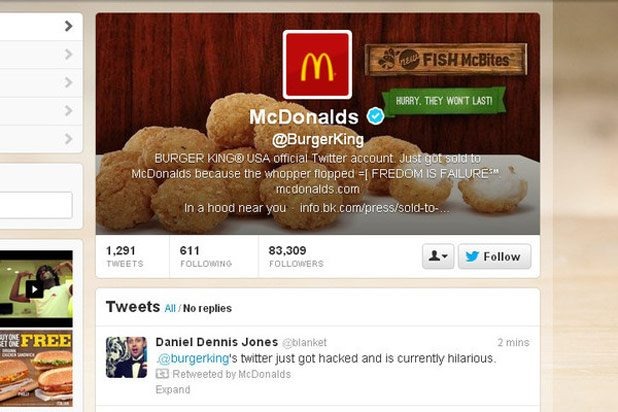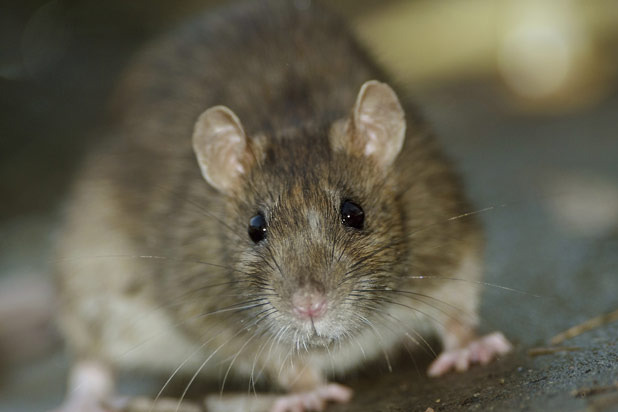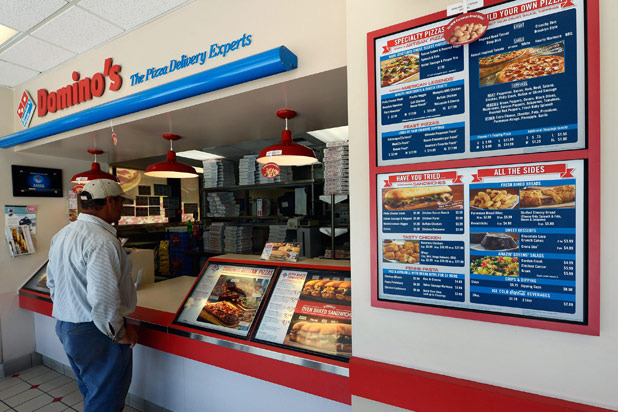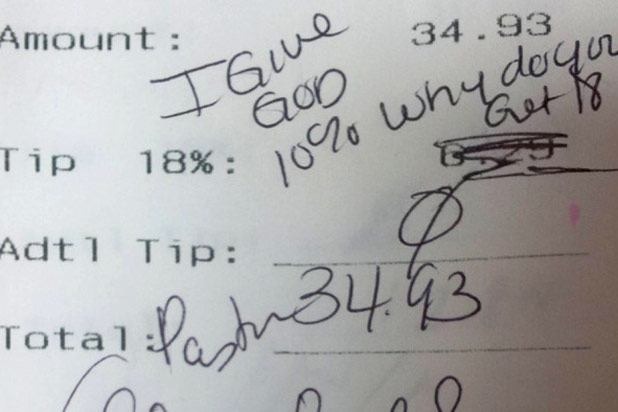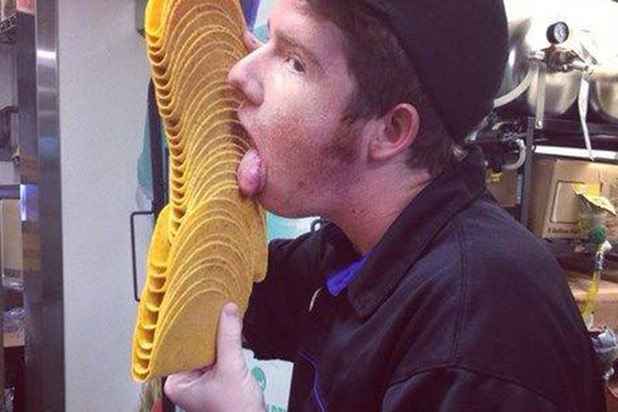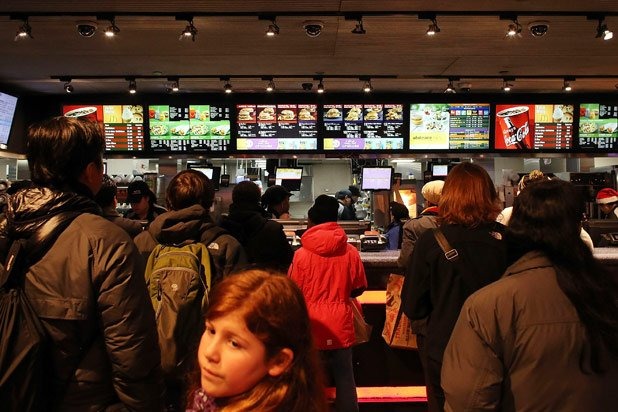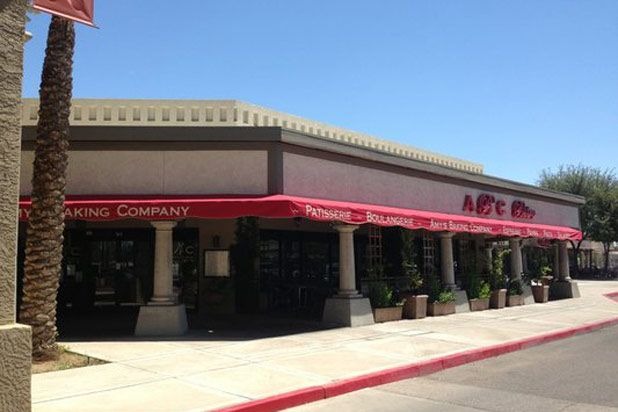The 10 Worst Restaurant Social Media Disasters (Slideshow)
A 3 year-old girl was mauled by pit bulls in April, causing scarring to her face, and last month the girl's family posted on their Facebook page that while visiting a KFC in Jackson, Miss. she "was asked to leave because her face scared the other diners." Word of the incident quickly spread via social media, and a FKC spokesman issued a statement saying that they launched an investigation, and in the meantime would donate $30,000 to her medical bills. The issue is still unresolved: KFC's investigation revealed no record of her having visited the KFC in question, but still offered the family the cash. The money was refused, as the family insists that it wasn't a hoax. Meanwhile, more than $100,000 has been donated to the family from well-wishers.
9) Burger King
February 2013, someone hacked into @BurgerKing and turned it into a McDonald's parody account, complete with a Fish McBites background photo. They sent out a series of borderline incomprehensible tweets for well over an hour before Burger King shut the profile down and restored all to normalcy, in the process picking up more than 30,000 new followers. McDonald's expressed its condolences by tweeting, "We empathize with our @BurgerKing counterparts. Rest assured, we had nothing to do with the hacking."
8) KFC/ Taco Bell
One of the first social media-fueled restaurant disasters occurred in New York in April 2007, when a TV news crew spotted rats running amok inside a Greenwich Village KFC/ Taco Bell and quickly aired it. The video made it to the fledgling YouTube shortly after. The incident made national news and was a major embarrassment for both parent company Yum! Brands as well as New York City (the restaurant had been inspected the previous day and received a passing grade). The inspector quit soon after, and the restaurant was permanently shut down soon after that.
7) Domino’s
In 2009, two Domino's employees decided to post a video of themselves messing around with food (sticking it up their nose and down their pants, sneezing on it, etc.), resulting in their firing, a lawsuit against them for food contamination, and a major headache for the chain. After thoroughly sanitizing the restaurant, the chain posted a note on their Facebook page, proving the right way to handle a potential social media disaster: "The opportunities and freedom of the Internet is wonderful. But it also comes with the risk of anyone with a camera and an internet link to cause a lot of damage, as in this case, where a couple of individuals suddenly overshadow the hard work performed by the 125,000 men and women working for Domino's across the nation and in 60 countries around the world."
6) Applebee’s
In February 2013, a waitress at a St. Louis Applebee's, Chelsea Welch, posted a photo of a receipt to Reddit. The customer, a pastor, declined to leave a tip for another employee, writing, "I give God 10% why do you get 18." Welch was fired for violating a customer's privacy. Within hours of word of the firing getting out, a barrage of negative comments hit Applebee's Facebook page and Twitter, causing a nightmare for the company. They disabled comments on their Facebook page and posted a note to it saying that they "wish this situation hadn't happened," and more than 20,000 responded to it. This would have been a small story 20 years ago, but Applebee's should have known that the firing would cause a social media nightmare.
5) Taco Bell
A word of advice: if you work at a fast food chain, don't defile the food in any way. If you do, don't take a photo of it. And if you do take a photo of it, don't post it to social media. In 2013, a Taco Bell employee did just that, posting a photo of him licking a stack of taco shells to his Facebook account. The photo, of course, went viral, but when Taco Bell finally released a statement it was too little, too late, and the chain's reputation for cleanliness took a major hit.
4) McDonald’s
In January 2012, McDonald's decided to get in on this whole hashtag game by asking people (and ideally farmers) to post uplifting things about the chain using the hashtag #McDStories. It quickly became a textbook exercise in the dangers of crowdsourcing, as Twitter users took advantage of the opportunity to tell not-so-uplifting stories, like the one who posted "Once when I was little, I was playing in the McDonald's playhouse and a rusty nail stabbed me in my foot. #McDStories." The chain pulled the hashtag after two hours. Oops!
3) Subway
In January 2013, an Australian teenager posted a photo of a "footlong" sub from Subway, with a tape measure clearly reading 11 inches. He posted the photo to Subway Australia's Facebook page, and it quickly racked up more than 100,000 likes. Subway responded in about the worst way possible, saying that "Footlong" is just a trademark, and "not intended to be a measurement of length." Soon, folks all over the world were measuring their sandwiches, and it turned out that few were actually 12 inches. Claims of false advertising ensued, and the company told the Chicago Tribune soon after that they've "redoubled their efforts to ensure consistency and correct length in every sandwich." Several actually filed a lawsuit against the chain, which has since been settled.
2) Chick-Fil-A
The anti-gay views of Chick-Fil-A president Dan Cathy ruffled plenty of feathers when they were exposed in 2012, and many took to the company's Facebook page to complain. The company's social media response was nothing short of inept, with a post saying that "...our intent is to leave the policy debate over same-sex marriage to the government and political arena.... Our mission is simple: to serve great food, provide genuine hospitality and have a positive influence on all who come in contact with Chick-fil-A." In short: "We'd like to sweep all of this under the rug and hope that you'll forget about it too." By refusing to address the issue, they angered even more people, and the company's reputation has taken a permanent hit.
1) Amy’s Baking Company
This Scottsdale, Ariz. restaurant isn't a chain, but its owners' epic meltdown became arguably more infamous than just about any other social media disaster in history. After Gordon Ramsay famously walked out of the eatery during an episode of Kitchen Nightmares that aired in May 2013, a surge of negative remarks were posted to the restaurant's Facebook page. Owners Samy and Amy Bouzaglo freaked out (to put it gently), replying in all-caps rants with plenty of insults and foul language. It eventually spilled over to Reddit and Yelp, with more than 1,000 comments in total. The Bouzaglos claimed that the accounts were hacked, but that doesn't seem very plausible.

